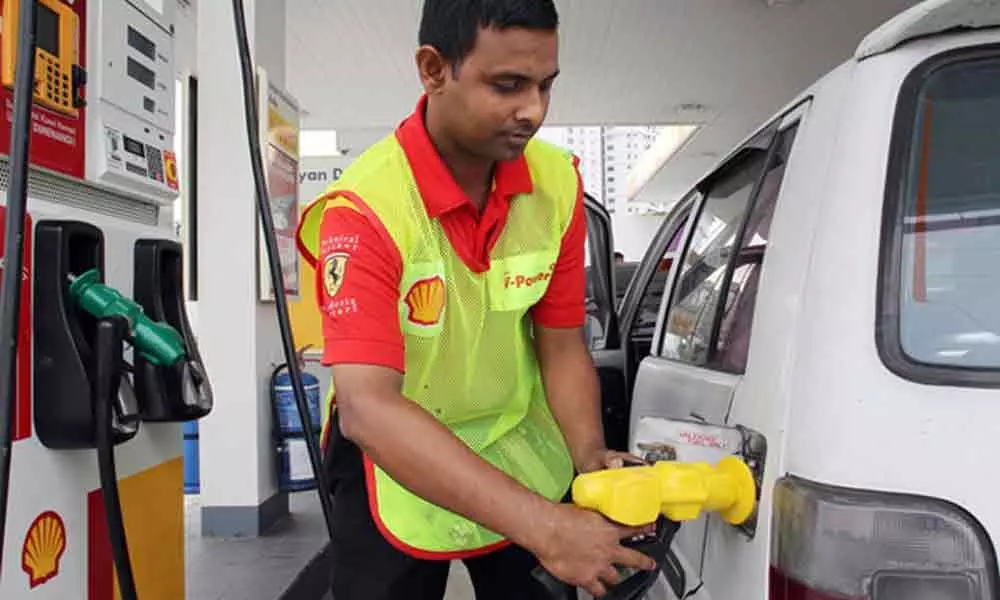Petrol pump attendants at more risk of headaches, high BP: Study

Petrol pump attendants at more risk of headaches, high BP: Study
Forty-nine per cent of the petrol pump attendants in the state capital suffer from musculoskeletal pain, followed by frequent headaches (26.7 per cent), eye irritation and high blood pressure (both 22.7 per cent) and stuffy nose (18.7 per cent), a study conducted by doctors attached to the state's top government medical college has revealed.
Panaji:Forty-nine per cent of the petrol pump attendants in the state capital suffer from musculoskeletal pain, followed by frequent headaches (26.7 per cent), eye irritation and high blood pressure (both 22.7 per cent) and stuffy nose (18.7 per cent), a study conducted by doctors attached to the state's top government medical college has revealed.
The study conducted by Dr. Akshaya V. Naik and Dr. A.M. Ferreira, both post graduation students at the Department of Prevent Medicine at the Goa Medical College, has also said that personal protective equipment (PPE) would help address some of the health issues faced by petrol pump attendants and should be made available for their safety.
"Fuel spillage over skin (68 per cent), extreme weather conditions (37.3 per cent) fuel spillage in the eyes (32 per cent) were the common hazards reported by the participants. None of the study participants was seen wearing goggles, mask or gloves for their personal safety," the study 'Cross Sectional Study of Occupational Hazards among Petrol Pump Attendants of Panaji City in Goa' which has been published in the latest edition of the International Journal of Preventive, Curative and Community Medicine has said.
"73 per cent of the study participants felt that the PPE should be made available for their safety. 22.7 per cent of the study participants had high blood pressure at the time of interview," it also said, advocating providing of PPEs as well as periodical medical check-ups for petrol pump attendants.
"Also, it has been reported in various studies, that petrol pump attendants have a higher risk of developing cancer from daily exposure to chemicals such as benzene and formaldehyde. This warrants the use of personal protective equipment by every individual working at the petrol pump station for their own safety," the study said.
Among the ailments typically suffered by petrol pump attendants, frequent headaches due to the exposure to petroleum fumes, tops the list.
"Musculoskeletal pain was the most common health problem perceived by the study participants (49.3 per cent) followed by frequent headaches (26.7 per cent), eye irritation (22.7 per cent) and stuffy nose (18.7 per cent),a the study, which has been conducted after interviewing attendants of seven major petrol pumps in the state capital has revealed. Musculoskeletal pain is caused by constant standing, which is common in the daily work routines of a petrol pump attendant.
"Exposure to excessive heat can lead to heat stress which may affect mental and physical health and may lead to anger, depression, giddiness and low work performance, while repeated exposure to cool temperature can cause hypothermia and chilblains," it also said.
Exposure to loud vehicle sounds and constant honking could also lead to "either temporary or permanent hearing loss".
"Petrol pump attendants are engaged in long hours of standing while at work. Chemical hazards can occur mainly due to contact and inhalation of the volatile gasoline at the work station. These workers are exposed to both the volatile hydrocarbon in fuel and the fumes from the exhaust of vehicles leading to genotoxicity," the research paper also said.











